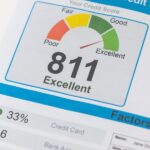Debt. It’s a four-letter word that can evoke feelings of anxiety, stress, and uncertainty. For many individuals facing mounting debts from credit cards, loans, and other financial obligations, the thought of finding relief can seem like an unattainable dream. That’s where debt consolidation enters the stage as a potential savior – a lifeline offering hope for those drowning in a sea of bills.
But what exactly does debt consolidation mean? In its simplest form, it is the process of combining multiple debts into one single loan or payment plan. Rather than juggling various due dates and interest rates on different accounts with different lenders, debt consolidation allows borrowers to simplify their finances by merging all outstanding balances into one manageable monthly payment.
The reasons individuals consider this option are as varied as the debts they seek to overcome. Some may be struggling with overwhelming interest rates that constantly raise their balance higher while barely making a dent in reducing it. Others might simply find it difficult to keep track of numerous payments scattered throughout the month. And for those who desire greater control over their finances or want to improve their credit score – debt consolidation presents itself as an appealing solution.
Intrigued yet? Stay with us as we delve deeper into the ins and outs of debt consolidation – uncovering its benefits and potential drawbacks along the way. Whether you’re overwhelmed by student loans or weighed down by high-interest credit card balances, understanding how this financial strategy works can give you clarity on whether it could be your stairway towards achieving fiscal freedom once again.
Benefits
Reduced interest rates: One of the major benefits of debt consolidation is the potential for reduced interest rates. When you consolidate your debts, you can often secure a loan or credit facility with a lower interest rate than what you were previously paying on multiple debts. This can result in significant savings over time and help accelerate your journey towards becoming debt-free.
Streamlined payments: Having multiple debts means juggling different due dates, minimum payment amounts, and creditors. Debt consolidation simplifies this process by combining all your debts into one single payment. This not only makes it easier to manage your finances but also reduces the chances of missing payments or incurring late fees.
Convenience and simplicity: Consolidating your debts offers convenience and simplicity in managing your financial obligations. Instead of dealing with several individual accounts and statements, you only need to focus on one consolidated account. This can alleviate stress and make it easier to track progress as you work towards eliminating your debt.
Drawbacks
Potential impact on credit score: Debt consolidation may have implications for your credit score, both positive and negative. While initially consolidating debts could potentially lower your credit utilization ratio (the percentage of available credit that is being used), it may also involve opening new accounts or closing existing ones which can have an impact on our credit score in the short term.
Cost implications: Depending on the specific terms of a debt consolidation program or loan, there may be associated costs involved such as origination fees, balance transfer fees, or other charges that could add to the overall cost of repaying the debt.
Factors to Consider
Types of debts that can be consolidated: Not all types of debts are eligible for consolidation; therefore understanding which obligations qualify is crucial before deciding if this solution is suitable for you. Common types include credit card balances, personal loans, medical bills,and certain student loans among others.
Process involved in consolidating debts: It’s important to understand how the process works – from applying for a consolidation loan or credit facility to transferring balances and closing accounts. Being aware of the steps involved can help you assess if it aligns with your financial goals, capabilities, and constraints.
Requirements for eligibility: Different lenders or debt consolidation programs may have specific requirements in terms of your credit score, income stability, employment status, and other factors that determine your eligibility. Understanding these criteria will help you gauge whether you meet the necessary prerequisites before pursuing debt consolidation as an option.
How to Determine If Debt Consolidation Is Right for You
Assessing personal financial situation
Before deciding if debt consolidation is the right solution for your financial woes, it is crucial to assess your personal financial situation. Start by examining all of your debts and their respective interest rates. Take note of any outstanding balances, payment deadlines, and penalties associated with each debt. This evaluation will provide you with a clear picture of how much you owe and help determine whether consolidating your debts into a single loan will be beneficial.
Consider other alternatives
While debt consolidation can be an effective tool for managing multiple debts, it may not be the best solution for everyone. Before committing to this strategy, considering other alternatives is essential. Look into balance transfer credit cards that offer low or zero percent interest rates during an introductory period—these can potentially save you money on high-interest credit card debts. Another option to explore is negotiating directly with creditors or seeking the assistance of a reputable credit counseling agency. Understanding these alternatives will enable you to make an informed decision about which approach aligns best with your unique circumstances.
Seeking professional advice
Navigating debt consolidation options can feel overwhelming, especially if you have limited financial knowledge or experience dealing with such matters. Seeking professional advice from a qualified financial advisor or credit counselor can provide invaluable insights specific to your situation. These professionals can assess your finances objectively, thoroughly explain the pros and cons of different strategies available, and guide you through the decision-making process while ensuring that everything adheres to legal guidelines. Their expertise ensures that whether it’s managing budgets effectively or exploring alternative methods like settlement plans or bankruptcy—every aspect will be evaluated impartially before deciding on the most suitable path forward.
In conclusion
Determining if debt consolidation is right for you involves assessing your personal financial situation thoroughly, considering alternative options beyond consolidation alone, and seeking professional advice as needed throughout the process.
Remember that no one-size-fits-all approach exists when it comes to managing debt. What works for one person may not be suitable for another, which is why it’s crucial to approach debt consolidation with a clear understanding of your financial circumstances and objectives.
By arming yourself with the necessary knowledge and seeking guidance from professionals who specialize in debt management, you can make an informed decision about whether debt consolidation is the right path towards achieving financial freedom.
The Final Verdict on Debt Consolidation
When it comes to debt consolidation, reaching a solid conclusion can be challenging. While this financial strategy has its merits and can be an effective tool for managing debt, it is not a one-size-fits-all solution for everyone. The decision of whether or not to pursue debt consolidation should be based on careful consideration of individual circumstances and goals.
For those burdened by multiple debts and struggling with high interest rates, debt consolidation offers the potential benefits of simplifying payments, reducing overall interest costs, and providing a clear path towards becoming debt-free. However, it is essential to weigh these benefits against the potential drawbacks. Consolidating debts often requires taking out a new loan or enrolling in a debt management program which may have associated fees or impact credit scores. Moreover, without addressing the root causes of the accumulated debts—such as overspending habits—debt consolidation may only provide temporary relief while leaving underlying issues unresolved.
Ultimately, the suitability of debt consolidation hinges on understanding personal financial objectives and exploring alternative options such as budgeting adjustments or seeking assistance from credit counseling agencies before making any decisions. It’s crucial to remember that there is no magic solution when it comes to managing finances; what works well for one person might not work for another. By carefully evaluating both the pros and cons of debt consolidation in light of individual circumstances, individuals can make empowered choices that will lead them closer toward achieving long-term financial stability and independence.






